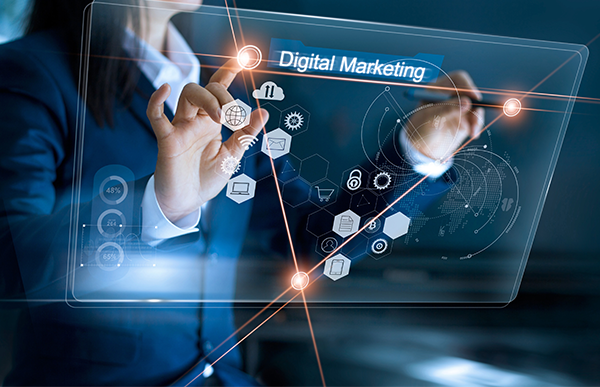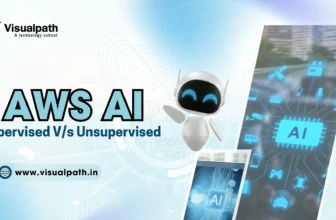
Artificial Intelligence (AI) is no longer something from a science fiction movie—it’s a working technology that is changing how companies do digital marketing. One of the most effective uses is AI agents—computer programs that can conduct tasks, make choices, and respond to users in real time. From chatbots to intelligent content creators, AI agents are assisting marketers with automating mundane tasks, improving personalization, and driving ROI.
In this blog, we’ll discuss how to use AI agents optimally in digital marketing and what advantage they can provide to your business.
What Are AI Agents?
AI agents are computer programs with artificial intelligence capability to execute tasks autonomously or semi-autonomously. They may undertake customer support, content generation, campaign optimization, lead generation, data analysis, and other tasks. AI agents differ from conventional automation tools in that they are able to learn, adapt, and make decisions based on data and context.
Some examples of AI agents in digital marketing:
Chatbots (e.g., webchat and social media chatbots)
Email marketing automation platforms
AI content generators
Ad campaign optimizers
Predictive analytics tools
- Improving Customer Experience using AI Chatbots
One of the most popular and efficient applications of AI agents is through customer service using chatbots. These bots can respond to questions 24/7, assist users in navigating your site, make product suggestions, and even facilitate transactions.
Advantages:
Less customer support expense
Improved response time
Increased engagement and satisfaction
Platforms such as Drift, Intercom, and ChatGPT-based bots offer intelligent AI agents that recognize customer intent and respond humanly.
- AI for More Intelligent Ad Campaigns
AI agents can process tremendous amounts of data in real time to optimize your PPC campaigns, enhance targeting, and real-time bid adjustment.
How it works:
Automatically A/B tests ads
Allocates budget to best-performing campaigns
Adjusts bidding strategies in real time
Google Ads Smart Bidding and Meta Advantage+ ads are great examples of AI optimisation at work. They consider user behavior, device, time of day, and more to achieve improved outcomes with less human input.
- Personalised Content & Recommendations
AI bots can ingest customer behavior, tastes, and engagement history to provide super-personalised content—be it in email campaigns, site experiences, or product suggestions.
Tools you can use:
Dynamic Yield or Optimizely for website personalization
Mailchimp AI solutions for intelligent email segmentation
HubSpot for AI-driven marketing automation
Personalization elevates user interaction, amplifies conversion rates, and enhances customer retention—making AI agents a worthwhile investment for content delivery.
- AI-Driven Content Creation
Developing good content takes time. AI content agents such as ChatGPT, Jasper, and Copy.ai can help produce blogs, ad copy, social media content, and so much more.
Use cases:
Create article outlines or complete drafts
Write product descriptions
Offer SEO-friendly headlines and keywords
Convert long-form content into short-form posts
Though human intervention is still required, AI significantly accelerates content creation and ensures consistency.
- Predictive Analytics for Intelligent Decisions
AI agents are able to look at historical data and forecast trends in the future, allowing marketers to make informed decisions using data. These range from predicting customer activity, flagging leads that are at risk of not converting, and product or campaign optimization through price or timing.
Tools to try:
Google Analytics 4 (GA4) predictive metrics
Salesforce Einstein for lead scoring
Crimson Hexagon for social listening and trend forecasting
Through predictive analytics, marketers can foresee outcomes and realign strategies prior to issues occurring.
- Social Media Monitoring and Automation
AI agents may also assist in managing and expanding your social media presence. Buffer, Hootsuite, and Lately.ai employ AI to:
Examine post performance
Suggest optimal times to post
Auto-generate post captions
Find trending hashtags or topics
These agents free up time and ensure your content strategy aligns with audience behavior and trends.
- Lead Scoring and Qualification
Instead of manually qualifying leads, AI agents can analyze user actions, assign lead scores, and determine who’s ready for follow-up. This improves sales alignment and focuses your efforts on high-potential prospects.
CRM systems like:
HubSpot
Zoho CRM
Salesforce AI
They offer lead scoring features that are continuously refined by AI based on real-time user interactions.
Best Practices for AI Agent Use
To achieve maximum benefits from AI agents, use the following best practices:
Begin Small: Introduce AI in one segment (e.g., email campaigns) and expand progressively.
Train Your Marketing Team: Make sure your marketing team is aware of using AI tools correctly.
Watch Your Performance: Don’t “set and forget.” Periodically check results and fine-tune.
Maintain Human Oversight: AI contents human creativity and decision-making—it doesn’t substitute them.
Maintain Data Privacy Compliance: Ensure that your AI technologies are GDPR, CCPA, and other privacy rules compliant.
Final Thoughts
Artificial intelligence agents are revolutionizing digital marketing courses in Chandigarh by making it quicker, brighter, and more efficient. From task automation to providing highly personalized experiences, they keep marketers ahead in today’s ever-competitive environment.
No matter whether you’re an SME or a corporate giant, incorporating AI agents into your marketing efforts can greatly increase your performance and productivity. The principle is to begin with well-defined objectives, select the right software, and keep adjusting according to data and outcomes.







